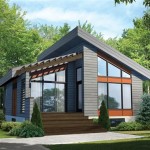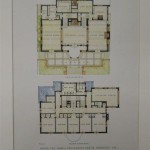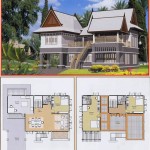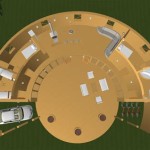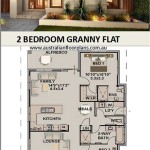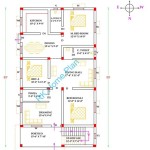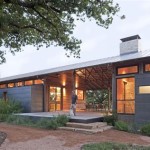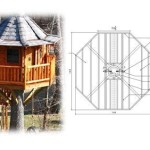Custom Build Home Plans: Essential Aspects to Consider
Embarking on the journey of building a custom home is an exciting endeavor that allows you to create a space tailored to your unique needs, preferences, and aspirations. Custom build home plans are the blueprints that guide the construction process, ensuring that your vision becomes a tangible reality. To achieve the best possible outcome, it's crucial to consider several essential aspects when designing your custom home plan.
Location and Site Selection
The location and site selection significantly impact the overall design and functionality of your custom home. Consider factors such as accessibility, proximity to amenities, natural surroundings, and the orientation of the lot relative to the sun. A well-chosen site can maximize natural light, enhance privacy, and create a harmonious relationship between your home and its environment.
Floor Plan and Flow
The floor plan is the foundation of your custom home, determining the layout and flow of spaces. Carefully consider the number of rooms, their size, and their relationship to each other. Plan for ample natural light, seamless transitions between spaces, and a balance between private and communal areas. The floor plan should reflect your lifestyle and accommodate future needs and changes.
Architectural Style and Aesthetics
The architectural style of your custom home is a matter of personal taste. Choose a style that complements the surrounding neighborhood, reflects your aesthetic preferences, and supports the desired functionality. Consider factors such as rooflines, exterior materials, windows, and landscaping to create a cohesive and visually appealing design.
Energy Efficiency and Sustainability
In today's environmentally conscious landscape, energy efficiency and sustainability are paramount. Incorporate energy-efficient appliances, insulation, and building materials to reduce energy consumption. Consider renewable energy sources such as solar panels or geothermal heating and cooling systems. Sustainable design practices can not only save you money but also reduce your carbon footprint and preserve the environment.
Functionality and Livability
Beyond aesthetics, your custom home should be comfortable, practical, and functional. Plan for adequate storage space, consider accessibility features, and ensure that the layout supports your daily routine and lifestyle. The home should accommodate your hobbies, entertainment needs, and any other unique requirements you may have.
Budget and Cost Management
Budgeting is a crucial aspect of any custom home project. Establish a realistic budget and work with your architect and contractor to develop a plan that aligns with your financial capabilities. Regular cost tracking and project management are essential to prevent overspending and ensure that the final result meets your expectations.
Professional Involvement
Engaging with experienced professionals is vital throughout the custom home design and construction process. An architect will translate your vision into a comprehensive plan, while a contractor will execute the construction skillfully and efficiently. Seek professionals with a proven track record, clear communication, and a commitment to delivering high-quality results.
By carefully considering these essential aspects, you can create a custom build home plan that fulfills your dreams, aligns with your lifestyle, and sets the stage for years of happy and fulfilling living.

Est House Plans To Build Simple With Style Blog Eplans Com

Easy To Build Houses And Floor Plans Houseplans Blog Com

Floor Plans Build On Your Lot Custom Home Builder New Construction Design Tech Homes Builders

Can Home Builders Build Floor Plans From Other Hedgefield Homes

Floor Plans Archives Travars Built Homes

40 X 60 Modern House Architectural Plans Custom

Easy Home Building Floor Plan Cad Pro

Custom Home Construction And Design Macik Builders Small Dream Homes Craftsman House Plans Floor

Custom Home Plans Partners In Building

House Plans The Best And Barndominium Designs 2024

